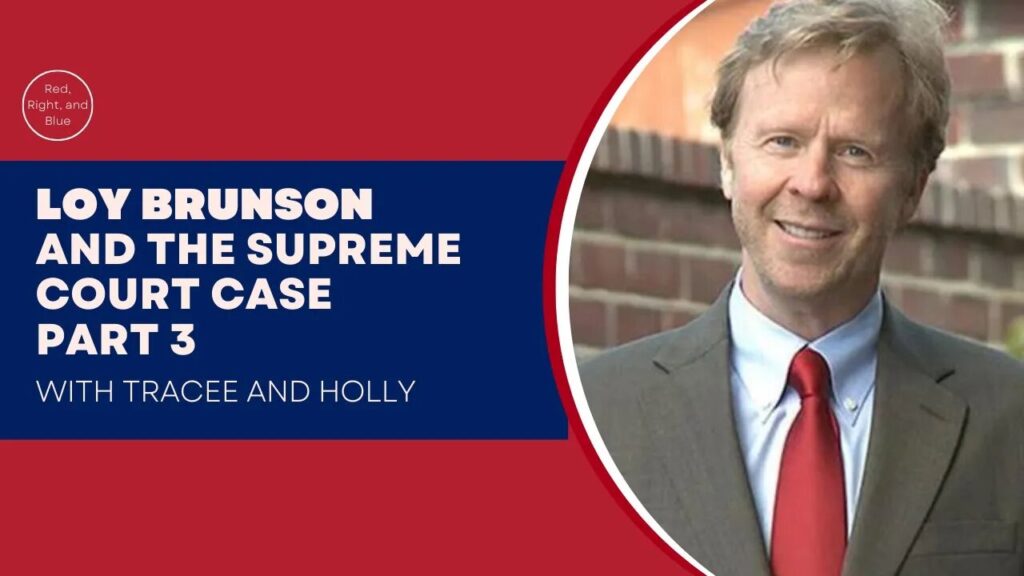The Brunson case has garnered significant attention across the United States, captivating audiences with its intricate legal maneuvers and implications for constitutional law. This article delves into the latest developments, exploring the context, critical arguments, and potential outcomes of this high-profile case.
The Background of the Brunson Case
The Brunson case stems from allegations that question the integrity of the U.S. electoral process and constitutional adherence by public officials. At its core, this legal battle involves claims that certain lawmakers and officials failed to investigate irregularities during a pivotal election, potentially violating their sworn constitutional duties.
Initially filed by the Brunson brothers, the case has worked its way through various courts, reflecting the persistence of the plaintiffs and the polarizing nature of the issues at hand. The case underscores broader debates surrounding election security, governmental accountability, and judicial oversight in America.
Recent Developments in the Brunson Case
The most recent update on the Brunson case reveals a significant turn of events as the U.S. Supreme Court agreed to review key aspects of the legal arguments presented. This move signals a potential shift in how constitutional violations are interpreted and addressed in the judicial system.
Central to the latest proceedings is whether elected officials can be held legally accountable for neglecting to investigate claims of election fraud. Advocates for the Brunson case argue that this accountability is essential to preserving democratic principles. Meanwhile, critics question the feasibility and broader implications of such a precedent.

The Legal Framework and Key Questions
What Are the Constitutional Implications?
At the heart of the Brunson case is the interpretation of constitutional duties. The plaintiffs contend that the failure to investigate credible allegations of election interference constitutes a dereliction of duty. This raises essential questions:
- Does the Constitution explicitly mandate such investigations?
- What legal remedies exist for violations of constitutional oaths?
The Role of Judicial Precedents
The case also invites a review of existing judicial precedents related to governmental accountability. Past rulings have often upheld the autonomy of elected officials in decision-making. However, the Brunson case challenges this autonomy by emphasizing accountability in situations where constitutional principles are at stake.
Broader Implications of the Brunson Case
Impact on Election Security
If the Supreme Court rules in favor of the Brunson plaintiffs, it could set a transformative precedent for future elections. Officials may face heightened scrutiny and potential legal consequences for failing to address electoral concerns, thereby bolstering election security.
Potential Political Ramifications
This case has already fueled intense political debates, with supporters lauding it as a step toward greater accountability and detractors warning of its potential to disrupt the balance of power. The decision could influence legislative priorities, particularly in areas related to election reforms and governmental oversight.
Public Perception of Judicial Integrity
The judiciary’s handling of the Brunson case will likely shape public perception of its impartiality and commitment to constitutional principles. A carefully reasoned judgment could reinforce trust in the judicial system, while a controversial decision may amplify existing divisions.
What Comes Next for the Brunson Case?
Supreme Court Timeline
The Supreme Court is expected to hear arguments in the coming months, with a decision anticipated later this year. Legal experts predict that the court’s ruling will hinge on the interpretation of constitutional text and the scope of judicial authority in enforcing oaths of office.

Possible Outcomes
Ruling in Favor of the Brunson Plaintiffs
A decision supporting the plaintiffs could:
- Mandate stricter accountability measures for elected officials.
- Set a legal standard for addressing electoral concerns.
Ruling Against the Plaintiffs
Conversely, a ruling against the plaintiffs might:
- Reinforce the autonomy of elected officials.
- Limit judicial intervention in matters of legislative discretion.
The Role of Public Opinion
Public sentiment plays a crucial role in shaping the narrative around the Brunson case. Supporters of the case emphasize the importance of upholding constitutional integrity, while critics caution against potential overreach and political motivations. Regardless of the outcome, the case underscores the vital role of civic engagement and informed discourse in democratic societies.
Historical Context of Similar Cases
Lessons from Past Precedents
Several historical cases provide valuable insights into the dynamics of constitutional accountability. For example, rulings on checks and balances have often highlighted the tension between judicial oversight and legislative independence. The Brunson case revisits these themes, offering a contemporary perspective on enduring legal debates.
Comparisons to Global Standards
The Brunson case also invites comparisons to international approaches to electoral integrity and governmental accountability. Countries with robust mechanisms for addressing election-related grievances may offer instructive parallels, contributing to the broader discourse on democratic governance.
Conclusion: Why the Brunson Case Matters
The Brunson case represents more than a legal dispute; it embodies the challenges and aspirations of a democratic society striving to uphold its foundational principles. As the case progresses, its implications for constitutional law, election security, and public trust will undoubtedly shape the trajectory of American democracy. Informed citizens, engaged discussions, and a transparent judicial process are essential to navigating this critical moment in the nation’s history.
Stay tuned for further updates as this landmark case unfolds, potentially reshaping the legal and political landscape in the United States.


